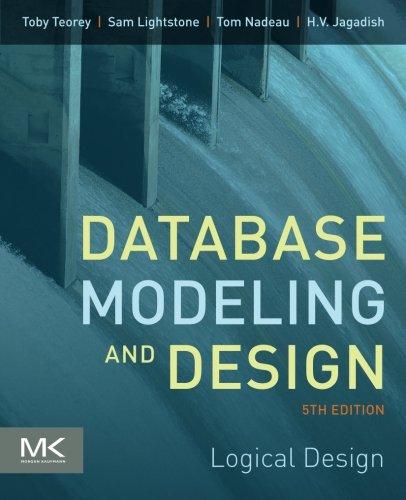Question
Please before answering read **I want the Code in Java** ***Don't copy submitted answer in chegg** **Output should be input by the user using a
Please before answering read
**I want the Code in Java**
***Don't copy submitted answer in chegg**
**Output should be input by the user using a switch case**
**Please submit the full code**
**Don't explain the code just send the full code in a readable way, showing classes**
Data Structures
Employee record management system using linked list
Problem: Create an employee Record Management system using linked list that can perform the following operations:
Insert employee record
Delete employee record
Update employee record
Show details of an employee
Search an employee
Update the salary of an employee
The employee record should contain the following items:
Name of Employee
ID of Employee
First day of work
Phone number of the employee
Address of the employee
Work hours
Salary
Approach:
With the basic knowledge of operations on Linked Lists like insertion, deletion of elements in the Linked list, the employee record management system can be created. Below are the functionalities explained that are to be implemented:
Check Record: It is a utility function of creating a record it checks before insertion that the Record Already Exist or not. It uses the concept of checking for a Node with given Data in a linked list.
Create Record: It is as simple as creating a new node in the Empty Linked list or inserting a new node in a non-Empty linked list.
Smart Search Record: Search a Record is similar to searching for a key in the linked list. Here in the employee record key is the ID number as a unique for every employee.
Delete Record: Delete Record is similar to deleting a key from a linked list. Here the key is the ID number. Delete record is an integer returning function it returns -1 if no such record with a given roll number is found otherwise it deletes the node with the given key and returns 0.
Show Record: It shows the record is similar to printing all the elements of the Linked list.
Update salary: It add 2% of the salary for every extra hour. By default, 32 hours are required for every employee.
Recommendations:
Although the implementation of exception handling is quite simple few things must be taken into consideration before designing such a system:
1. ID must be used as a key to distinguish between two different records, so while inserting record check whether this record already exists in our database or not, if it already exists then immediately report to the user an error message.
2. The record should be inserted in sorted order, you can use the inserting node in the sorted linked list seen in the lecture.
Step by Step Solution
There are 3 Steps involved in it
Step: 1

Get Instant Access to Expert-Tailored Solutions
See step-by-step solutions with expert insights and AI powered tools for academic success
Step: 2

Step: 3

Ace Your Homework with AI
Get the answers you need in no time with our AI-driven, step-by-step assistance
Get Started


